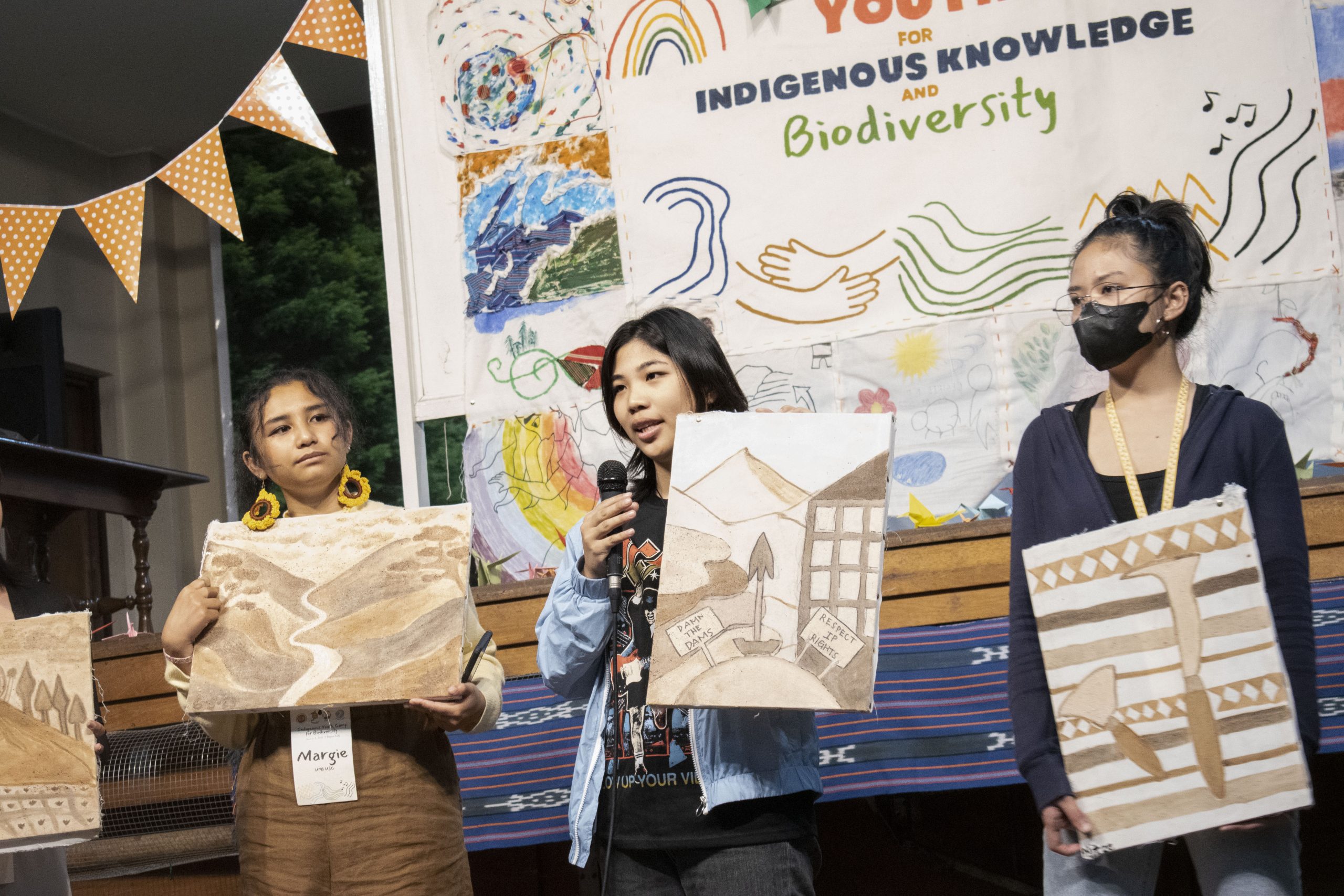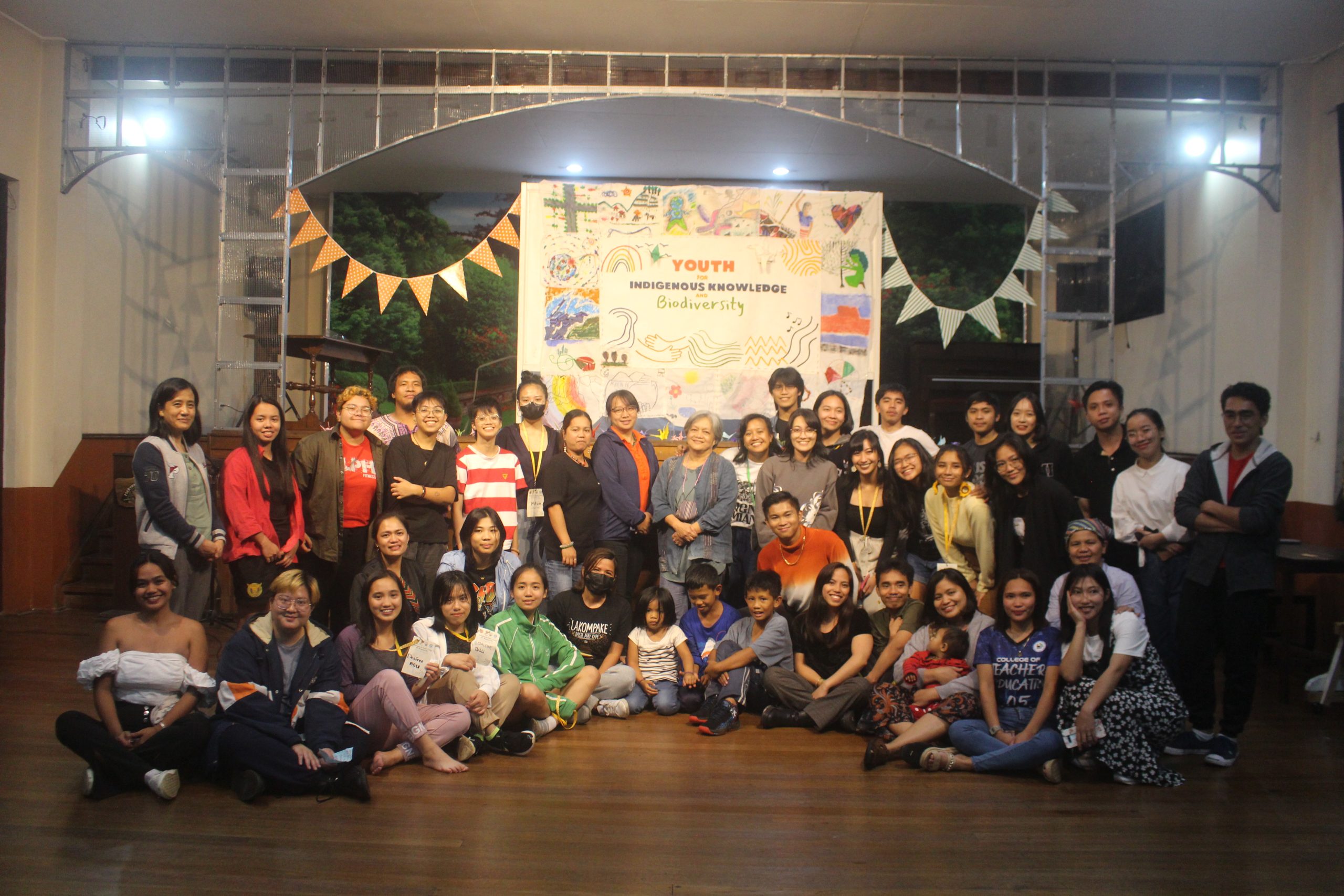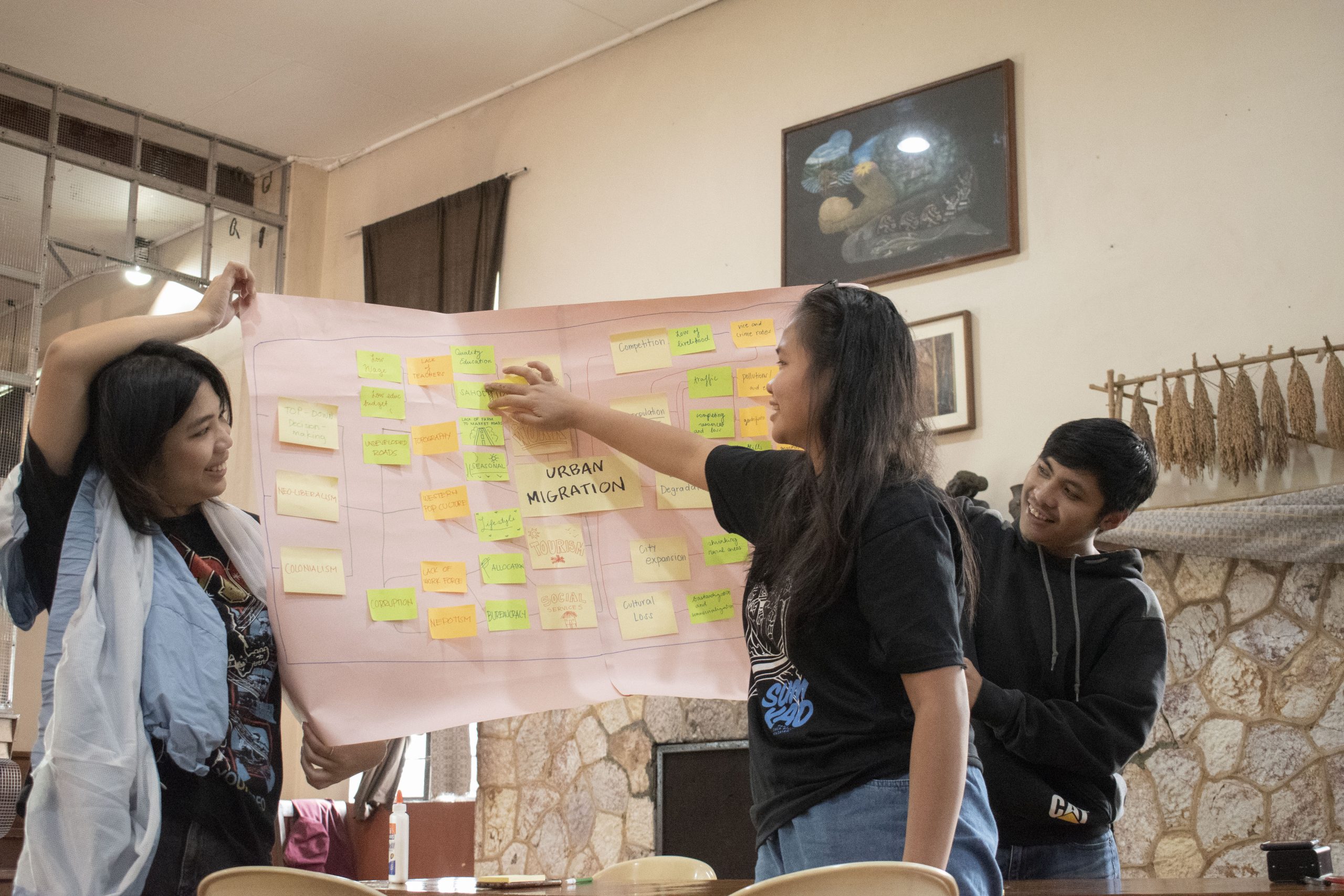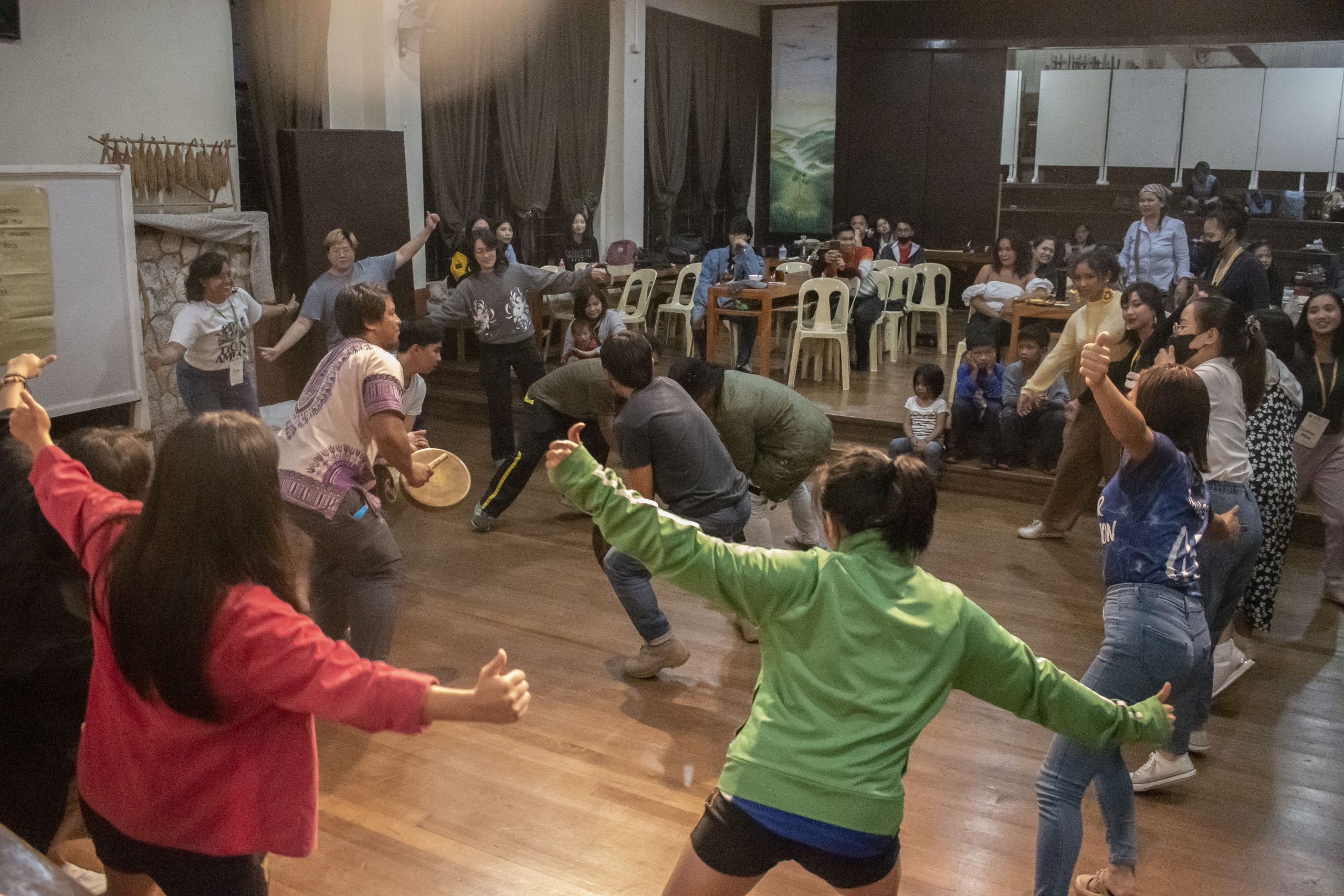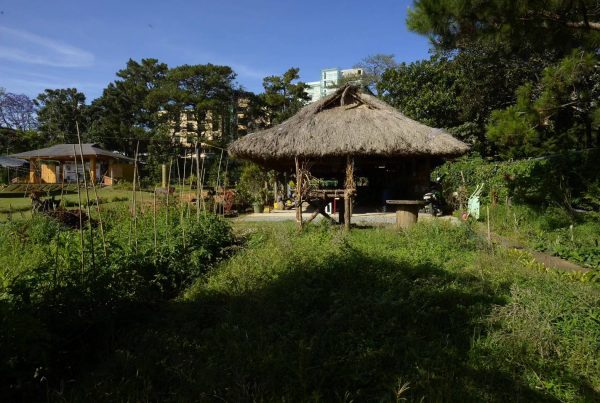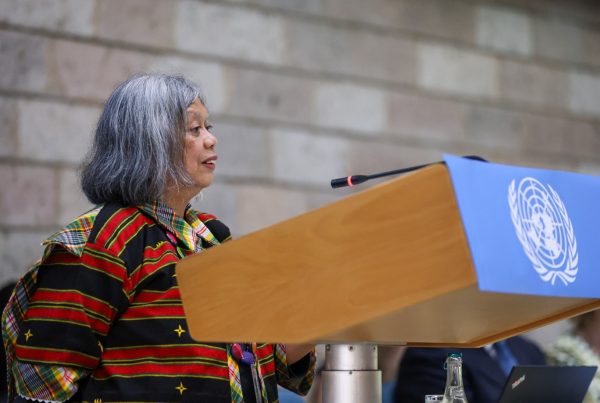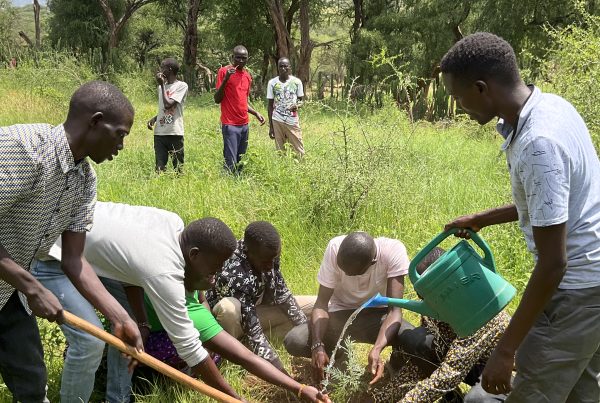Many children and young indigenous peoples whose families have moved to the cities and grew up in the cities oftentimes feel a disconnect to their communities of origin. This has been expressed by young people in former youth activities where there is a great interest to learn more of their cultures, their languages, and their indigenous practices.
Realizing that young indigenous peoples, in the course of their own cultural learnings, have their own experiences to share, the Partners for Indigenous Knowledge Philippines (PIKP) brought together several indigenous youth and biology groups in a camp called Youth for Indigenous Knowledge and Biodiversity. Held for two days on June 3 to 4, 2023, the camp was a step towards an indigenous youth network promoting indigenous wisdom and biodiversity conservation.
“Nature and culture are inextricably linked and we as youth organizations should step up our fight against anti-people and anti-environment policies and programs.” – Max, University of the Philippines-Baguio
The indigenous youth participants engaged in various exchanges. They took time to reflect on their vision for Living in Harmony with Nature. A common expression among them was how land, waters, forests, peoples, spaces, knowledge, music and dance, storytelling, values, among others, were bound by an innate connection to each other. Realities of big-scale dam projects, chemical agriculture, and continuous out-migration from indigenous communities to the cities, among others, were present challenges they conveyed. Still, they expressed resolve and hope to do more to protect indigenous lands and its related indigenous knowledge from being lost. This was all visually represented and sewn together in a cloth artscape.
The cultural expression workshops were facilitated by PIKP partners Dap-ayan ti Kultura iti Kordilyera and the Cordilleran Youth Center. They shared steps on song and chant making, on movement and theatre, and on soil painting from which the young participants produced results shared in a cultural night sharing. The workshop on Systems Thinking, conducted by the Global Youth Biodiversity Network, provided an opportunity for in-depth discussions on interconnectedness of causes and effects of issues, other than merely being linear. The young participants looked at issues of loss of traditional knowledge, unsustainable agriculture, and extractive industries.
Many participants of the youth camp expressed the desire to return to their respective communities for a time to engage more with their ili or community. Workshops on traditional musical instruments, dance, music, among many others were proposed. In the meantime, a further planning will be conducted with the same group of participants and possibly more youth groups to determine this loose network’s next course of actions.
Type: Article
Region: Asia
Country: Philippines
Theme: Traditional and local knowledge
Partner: Partners for Indigenous Knowledge Philippines (PIKP)
Tags: Youth Engagment, Indigenous Art
